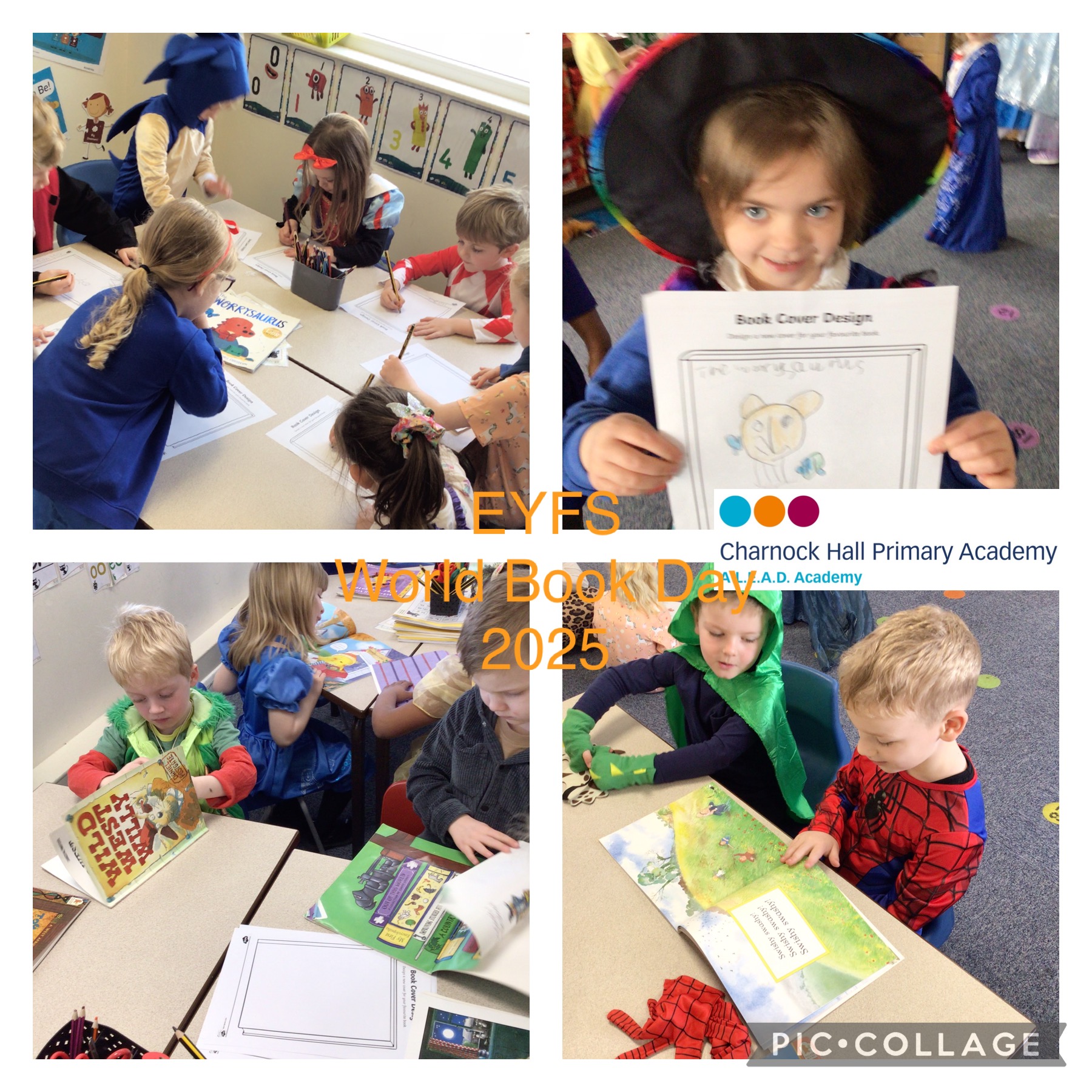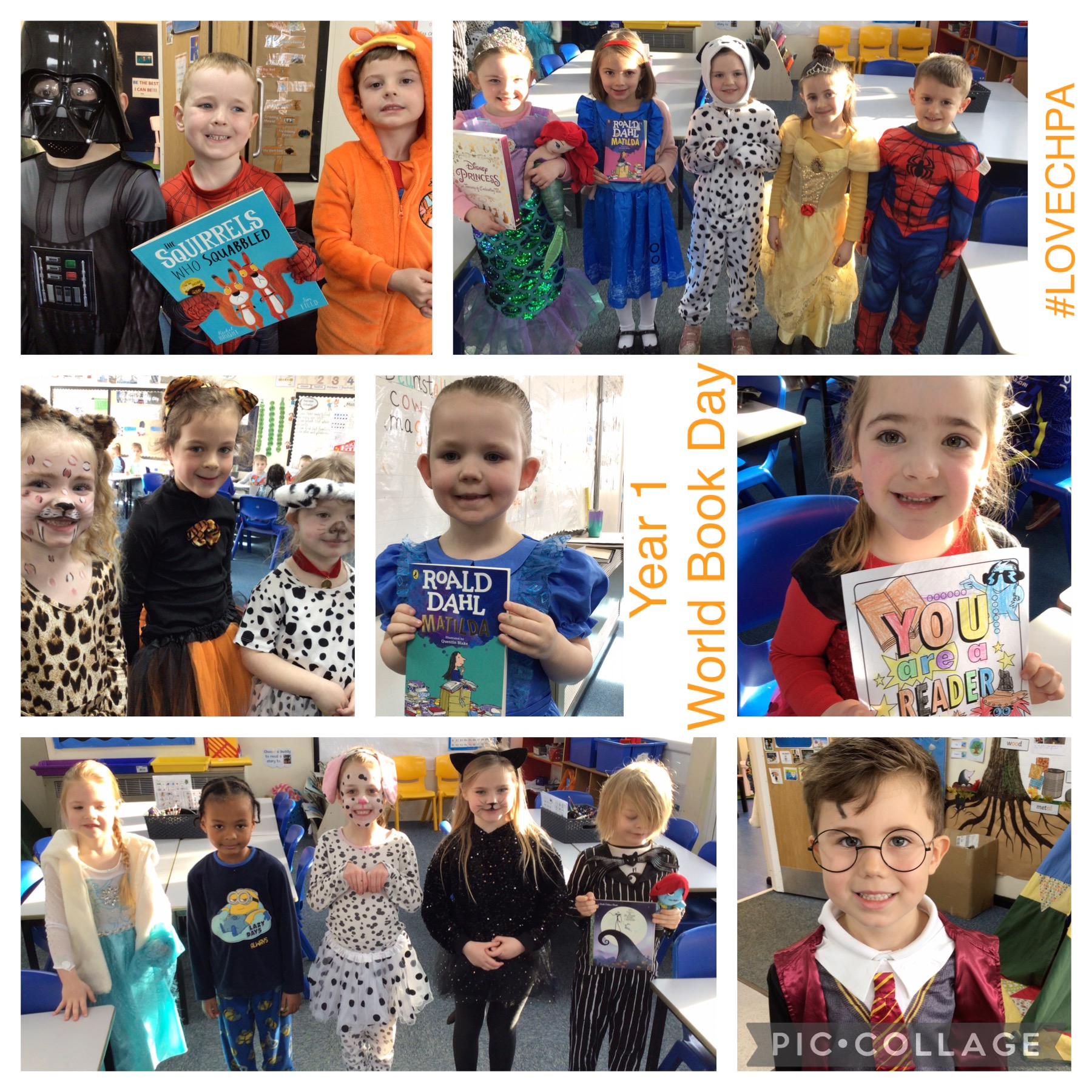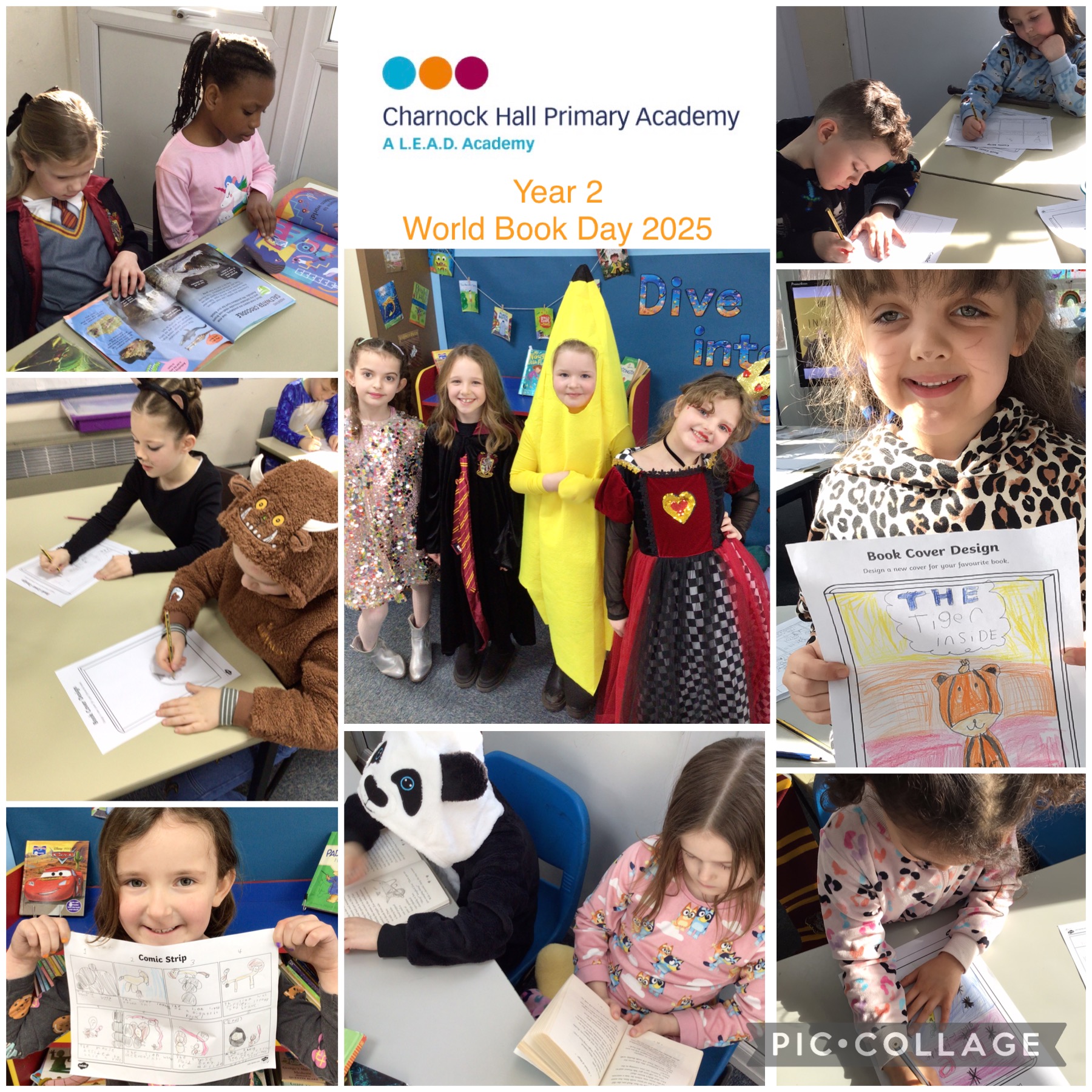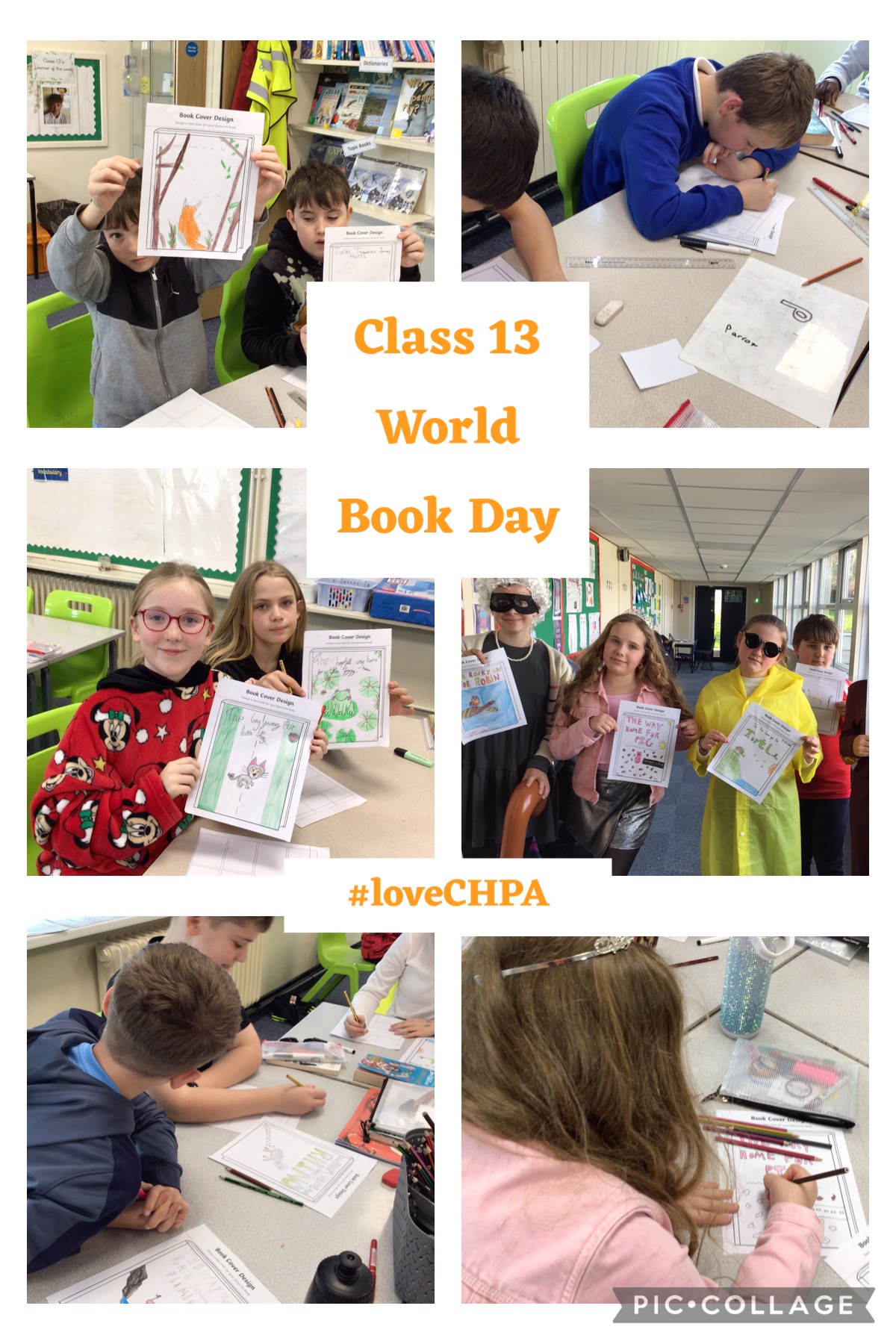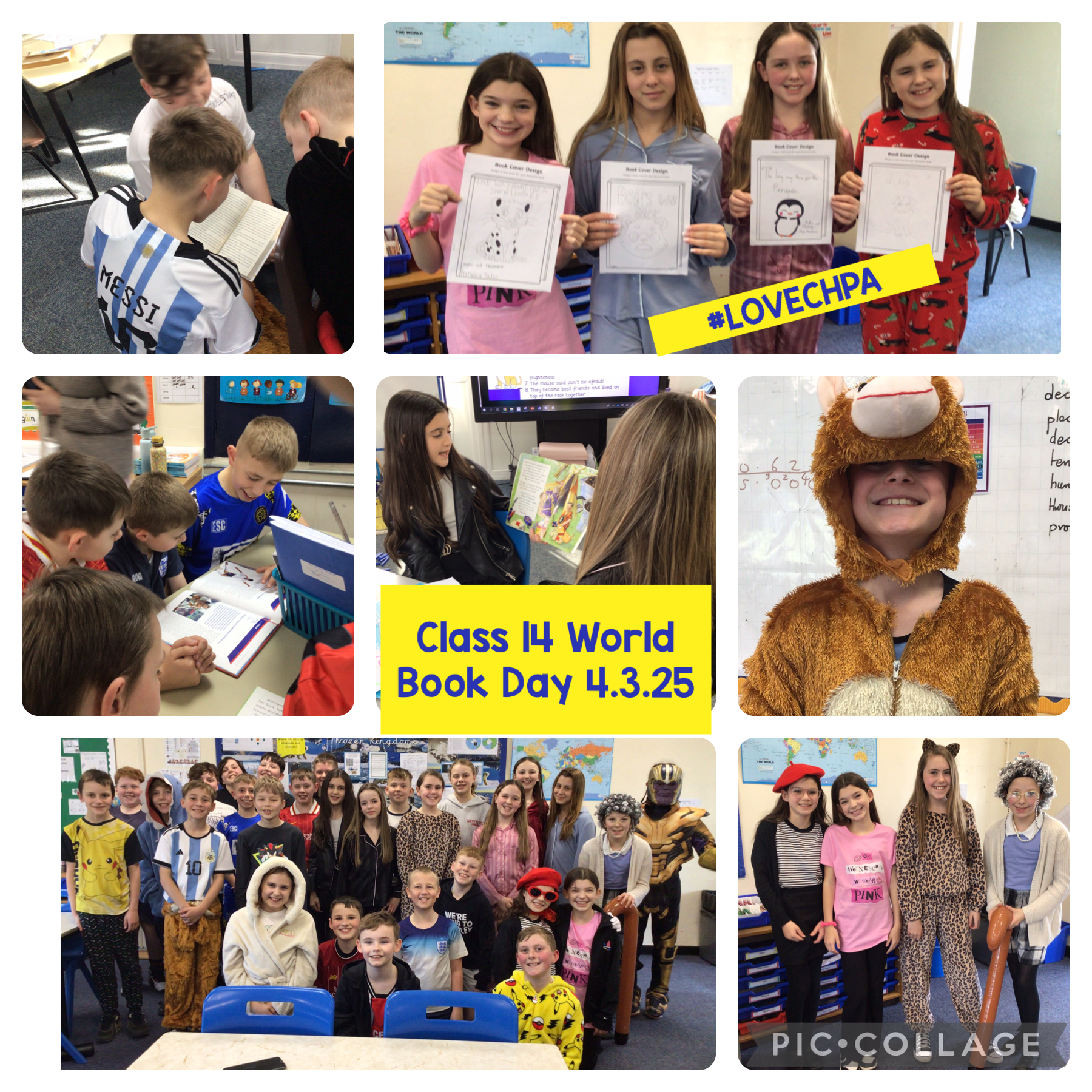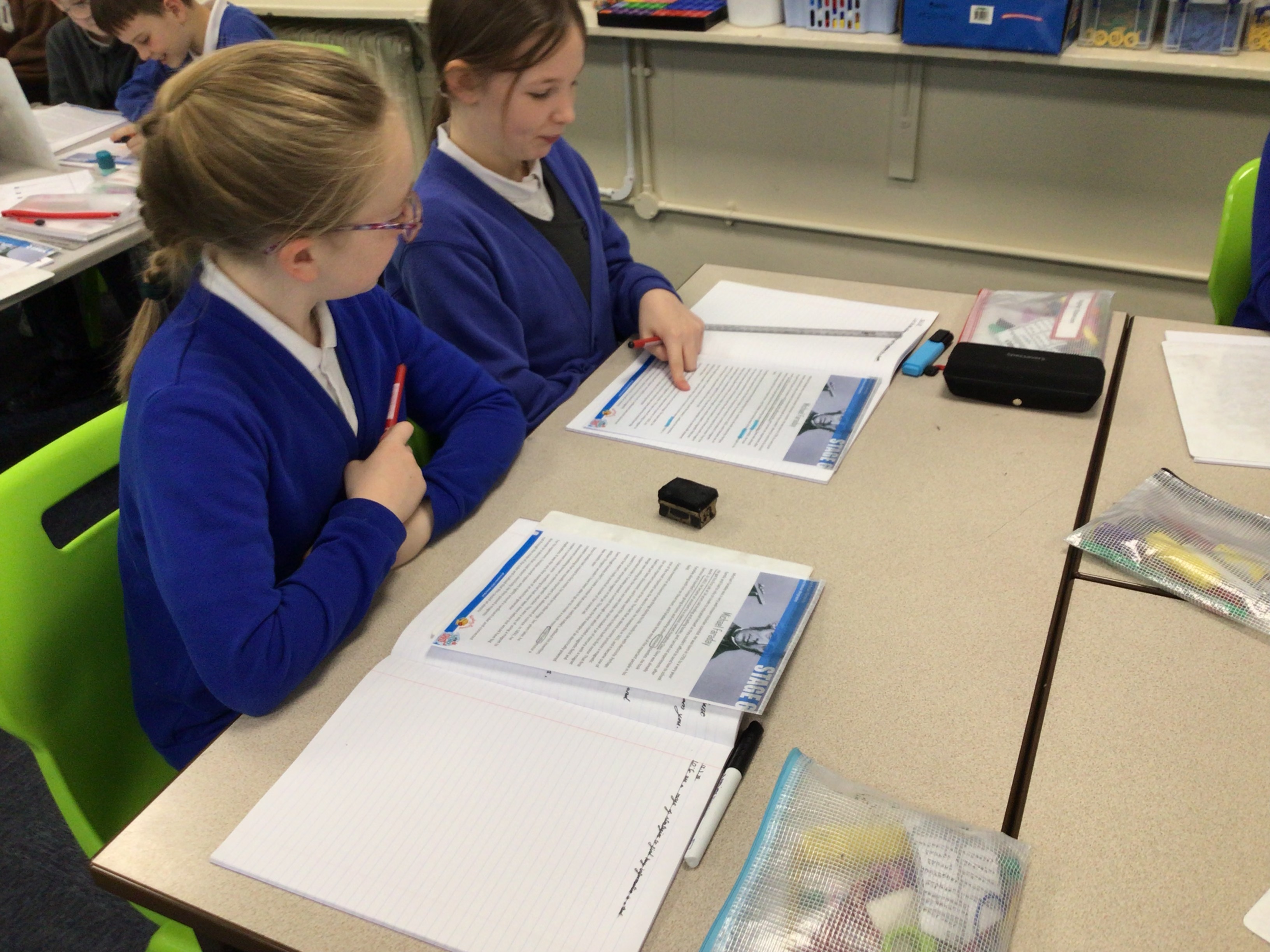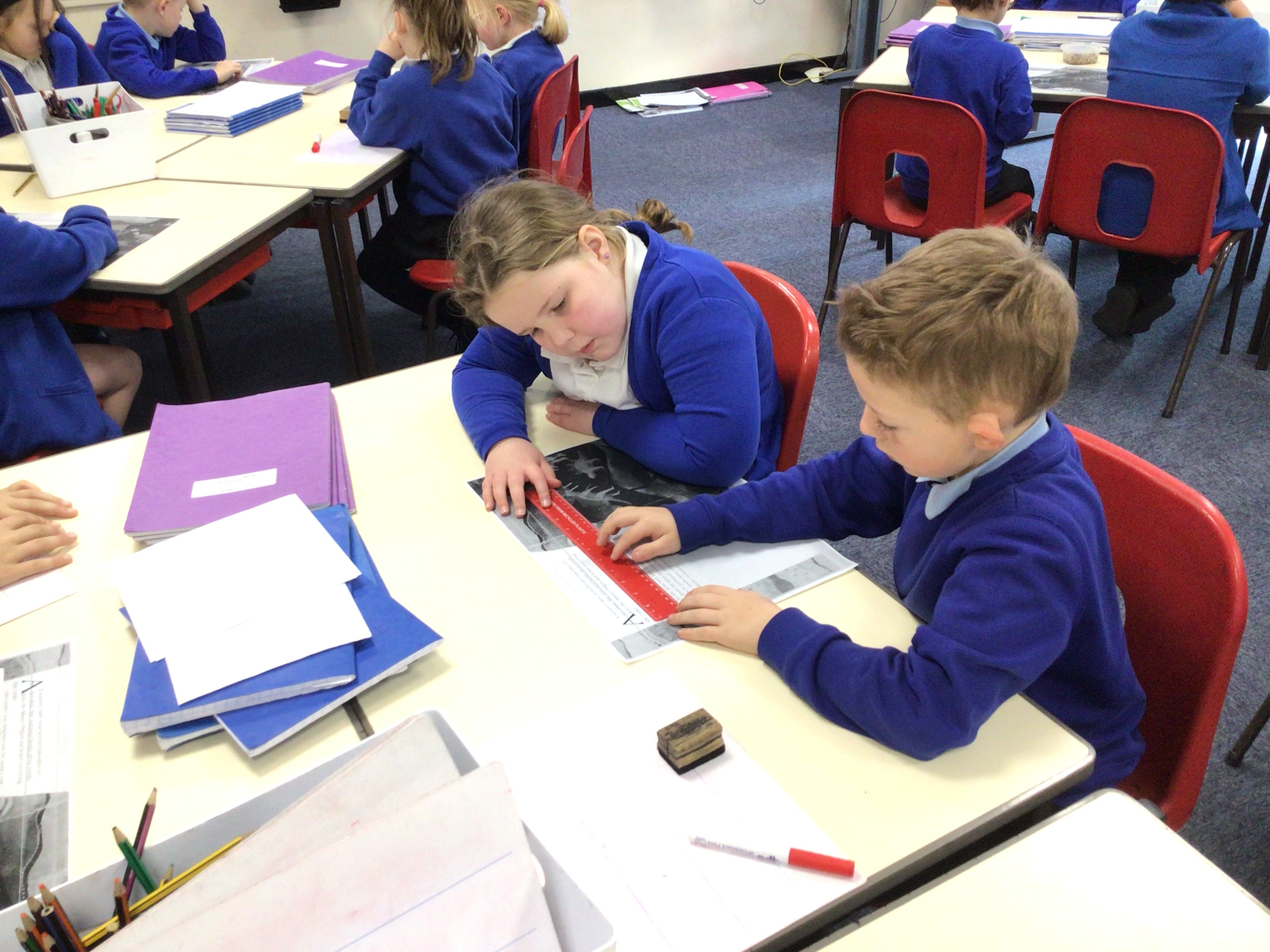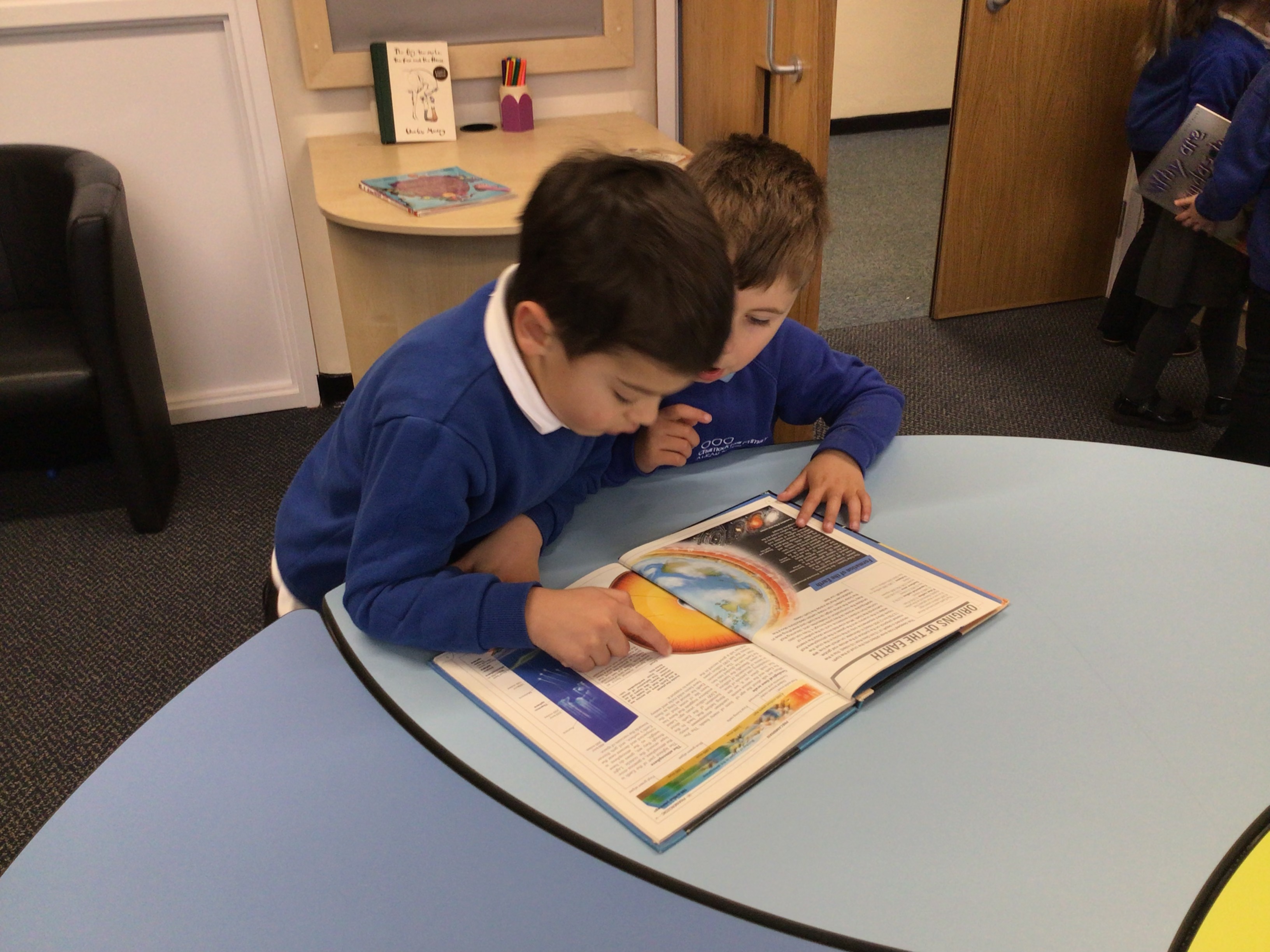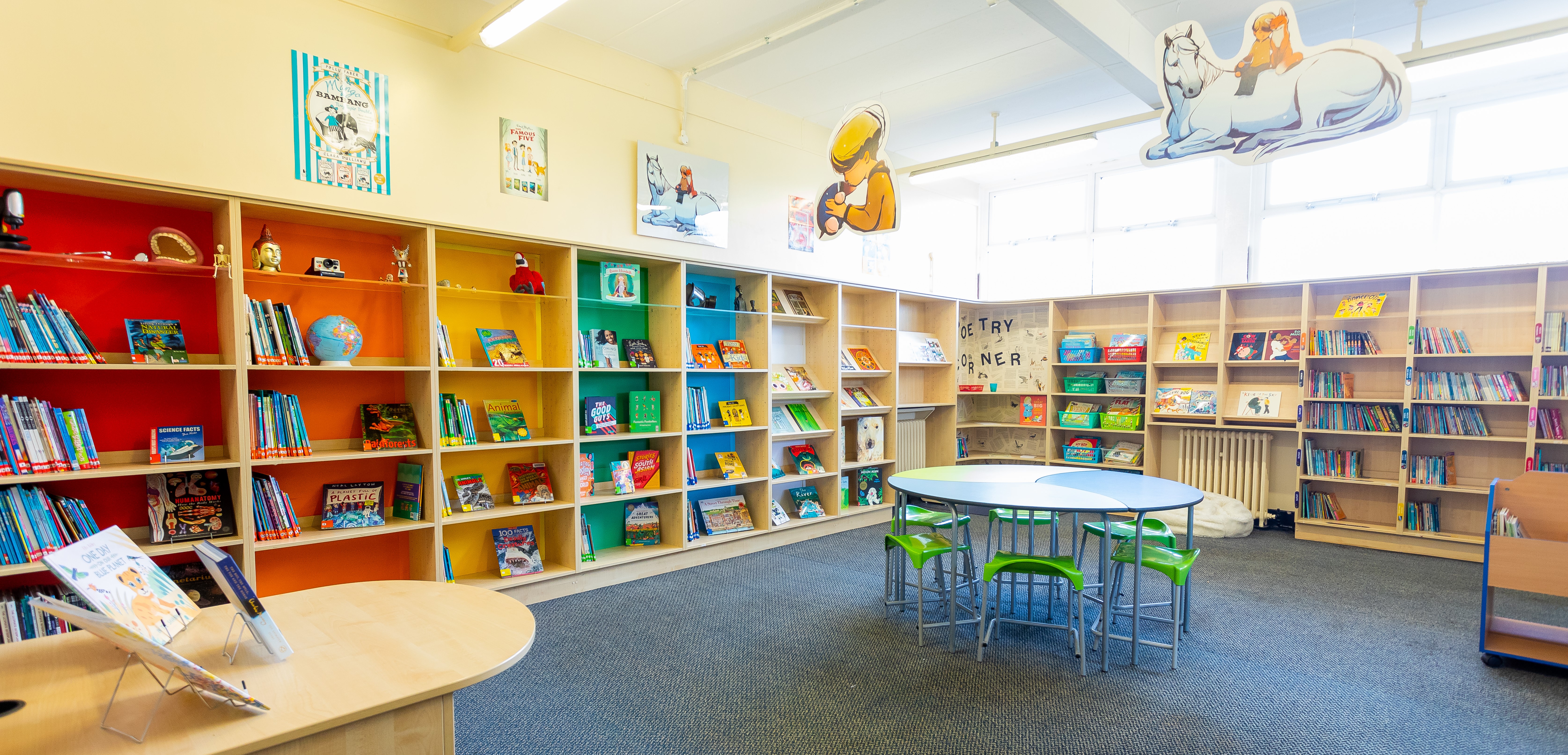
Each class has an ambassador for every subject. One of these ambassadors is chosen to be the CHPA representative. These pupils are
passionate about the subject they represent, they enjoy learning about their chosen subject and are inspirational in leading and
empowering other pupils to feel the same way.
Our Pupil Subject Ambassadors for English are –
| Reading | Writing | |
| Y1 | Eden | Priyah |
| Y2 | Emmanuel | Star |
| Y3 | Florence | Valentina |
| Y4 | Marianne | Daisy |
| Y5 | Bella | Rasha |
| Y6 | Calin | Charlotte |
Freya is the CHPA English Representative. She said the following about English, ‘I like writing at length and always have done. I like reading books especially ones that get turned into movies. Reading books helps me to have great ideas and creativity in my writing.’
At Charnock Hall Primary Academy, we use a wide range of initiatives to support with our English curriculum.

Phonics Intent, Implementation & Impact
Intent
The systematic teaching of phonics has a high priority throughout Foundation Stage and Key Stage 1. At CHPA, we value reading as a key life skill, and are dedicated to enabling our pupils to become lifelong readers. We acknowledge that pupils need to be taught the key skills in segmenting and blending to be equipped with the knowledge to be able to complete the phonics check at the end of year 1. We also value and encourage the pupils to read for enjoyment and recognise that this starts with the foundations of acquiring letter sounds, segmenting and blending skills.
Implementation
In EYFS and KS1, a systematic and rigorous approach to phonics will be applied through the delivery of the Monster Phonics programme.
Pupils are taught phonics daily following the progression from Monster Phonics (www.monsterphonics.com). These lessons consist of:
Tracking and assessment
Year 1 Screening Check
Reading for Pleasure
Reading
Impact
By the end of Key Stage 1, pupils at Charnock Hall have the required phonics knowledge and application of these skills to become fluent readers and competent writers moving into KS2. Their confidence, resilience and engagement in phonics lessons foster a love for reading and writing.
Formative assessment strategies, which are implemented in all sessions and summative assessments, which are gathered on a half termly basis, allow pupil’s progress in Phonics to be monitored using our tracking document. It provides opportunities for data analysis and encourages discussions around pupil progress, group progress, future learning and misconceptions, enabling us to respond and adapt teaching within the programme to provide additional support and challenge to pupils. Overall attainment in phonics is measured by the Phonics Screening Check at the end of Year 1, if required, provisions are put in place for pupils who do not meet the required pass mark.
Phonics Progression Maps
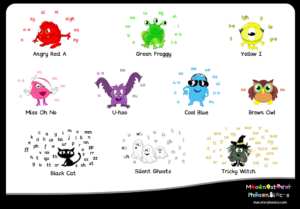
Intent
At Charnock Hall Primary Academy reading is a top priority and is a key driver within our curriculum. It is our intention to ensure that by the end of their primary education, all pupils can read fluently and enjoy reading for pleasure.
We intend to encourage all pupils to read widely across both fiction and non-fiction to develop:
We are committed to providing quality, vocabulary-rich reading material, which immerses and enhances all pupils’ wider knowledge of the spoken and written word, through modern and classic children’s literature, poetry and non-fiction texts.
Impact
Reading after Phonics
Once pupils are confidently reading, typically during mid-Year 2 and they have successfully completed Monster Phonics they move on to accessing the Big Cat Collins books, which ensures all texts are read independently and are accurately matched to pupils’ ability.
Reading for Pleasure
Impact
The Reading curriculum is evaluated through:
As we believe that reading is key to all learning, the impact of our reading curriculum goes beyond the result of statutory assessments. Pupils have the opportunity to enter the wide and varied world that reading opens up to them. As they develop their own interest in books, a deep love of literature across a range of genres cultures and styles is enhanced.
We aspire that all pupils are fluent, confident and able readers, who can access a range of texts for pleasure and enjoyment, as well as use their reading skills to unlock learning in all areas of the curriculum. We aim for pupils to relate their reading experiences to their own personal development, developing an empathy for characters and making links to their own behaviours.
Whole Class Reading Lessons
Towards the end of Y2 and until the end of Y6 pupils take part in whole class reading lessons. We want pupils to become expert readers capable of making comparisons between authors and understanding language choices. Our lessons focus primarily on exposing pupils to challenging vocabulary and giving them the background knowledge required. All teachers use the reading lessons to introduce pupils to a range of genres and to teach a range of techniques which enable children to comprehend the meaning of what they read. All pupils have the opportunity to read aloud to the teacher across the reading lessons to develop their accuracy, automaticity and prosody.
Reading Progression Map
We passionately believe that reading and writing encourages pupils to make links and become empathetic and ambitious writers. Our long, medium and short term planning – as well as the use of progression maps – ensure that a variety of genres are progressively taught and built upon throughout the year and throughout the academy.
At CHPA we are committed to fostering a love for writing among pupils, recognising it as a fundamental skill that empowers them to express their thoughts, emotions, and ideas effectively. Writing includes a wide range of texts, with some linking to wider-curriculum topics to allow pupils to draw on their knowledge and make links across their learning. However, as we are always looking to develop and refine approaches to meet the needs of pupils, upon the recent appointment of a new writing lead, we are reviewing and updating our writing stimuli for the 2025-26 academic year.
Intent
Our intent for writing is shaped by the following key principles:
Implementation
To achieve our writing intent, we adopt a systematic and inclusive approach:
Impact
The impact of our writing strategy is evident across multiple dimensions:
Active English is a CHPA wide approach for teaching grammar, writing and punctuation. It is largely aimed at years 1 to 4, but its elements can be used flexibly across all year groups to meet the needs of all pupils. What is important, is that there is a consistent approach, where all teachers and teaching assistants are supported, so that the programme can be implemented CHPA-wide, in a consistent manner. It uses the principles of mnemonics to embed learning in an active and engaging way, which provides pupils with a deeper grasp of language that serves as a foundation for their future.
Active English Information – A Parents Guide
At Charnock Hall Primary Academy we fulfil the requirements of the National Curriculum by teaching children to have a handwriting style that is fluent, legible and as they progress through school, joined.
We do this by following the Martin Harvey Scheme which teaches letter formation and joins. Handwriting is taught explicitly from Foundation, 3 times a week for 15 minutes (more if required). Pupils are then expected to apply their handwriting skills to all other subjects across the curriculum.
Lesson Structure
A typical lesson will consist of the following:
By the end of their time at CHPA, pupils leave with highly developed communication skills that they can take into secondary education and beyond. Success is not only achieved through attainment, but through their engagement with, and enthusiasm for, the many aspects of English encountered throughout their time at the academy.
Upon transition to secondary education, pupils can read fluently and widely, with a thirst for reading a range of genres and text types, including poetry. Pupils appreciate the joy and wonder of reading and are able to express preferences and opinions about the texts that they read. Due to the implementation of our writing curriculum, pupils head into secondary education as confident writers. Through their time at the academy, pupils have developed a familiarity with most genres of writing and have a strong understanding of the need for creativity, the craft of writing, writing for a sustained period of time and the manipulation of grammar and punctuation skills.
Through our English curriculum, we ensure that our pupils are well-equipped for life in modern Britain. Through purposeful subject linkage, such as using argument and discussion texts requiring pupils to understand different points of view and debates or through embracing literature from different world faiths and cultures, we aim for our pupils develop an excellent understanding of democracy, the rule of law, responsibility and liberty, mutual respect and tolerance of those of different faiths and beliefs.
Further to this, our English curriculum is also driven by SMSC development and this can be exemplified in the following ways;
